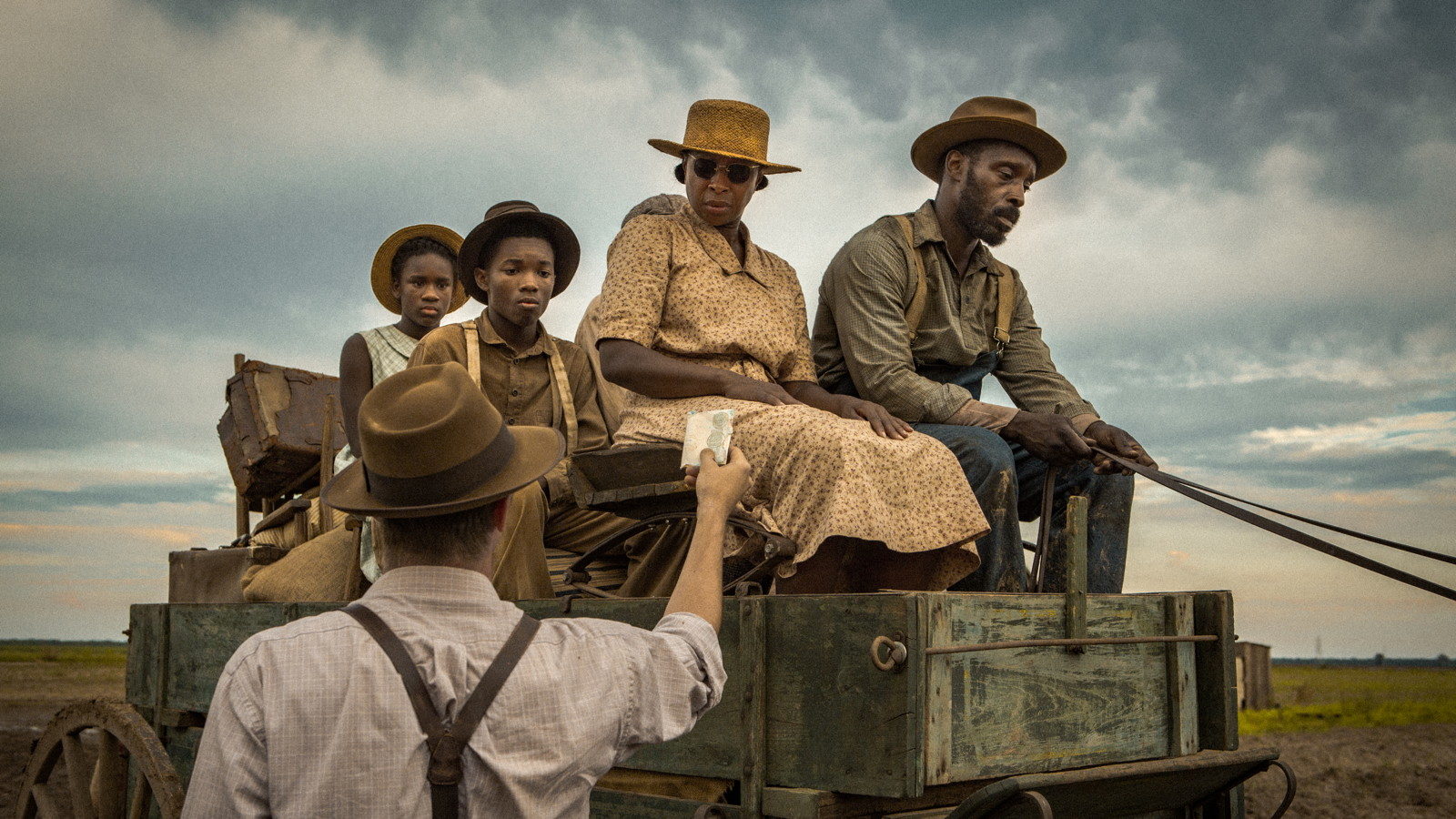Family sagas are especially difficult to translate to the cinematic medium. Not only is one working with a large cast of characters in a limited timeframe, but those characters often represent concepts larger than themselves, which is something that can come across more easily in literature than the literal visuals of a film. This is the primary difficulty with Dee Rees’s Mudbound, which is a gripping tale that acts as a near perfect translation of Hillary Jordan’s novel by the same name, but the limited runtime doesn’t quite allow the narrative’s slow burn to burn quite slow enough.
Mudbound is the story of two intrinsically linked families during and after the Second World War. The white McAllans have just bought Mississippi land that they hope to farm and turn a profit on, though the property was purchased sight unseen and turns out to be more difficult to manage than Henry McAllan (Jason Clarke) originally thought. Meanwhile, the black Jackson family are tenant farmers on the McAllan’s land, struggling to make enough money so that they may start a new life elsewhere with their own land. In a tale taking place over many years, we see how these two families are intrinsically bound in ways that act as a microcosm of race relations in America.
As is necessary for a film of this scope, Mudbound takes its time in establishing its characters and setting, allowing the gothic atmosphere to soak in through cinematographer Rachel Morrison’s gorgeous rendition of the grime-soaked American South. As we come to know our cast, though, it becomes clear that some pitch perfect casting has brought these characters to life. Carey Mulligan is a powerhouse as Laura McAllan, a woman unwillingly dragged along by the poor decisions and stubborn will of her husband. She is complemented by Mary J. Blige as Florence Jackson, a woman whose quiet strength keeps her family going even as her husband Hap (Rob Morgan) finds his resolve wavering. For Pappy, the cantankerous racist patriarch of the McAllan clan, there could be no better casting than Jonathan Banks, who snarls and curses his way through the role but never elevates the character to caricature.
However, the meat of the story doesn’t come until after the conclusion of the war, when Jamie McAllan (Garrett Hedlund) and Ronsel Jackson (Jason Mitchell) each return to their families as different, wiser, and more broken men. Their experience in war has bound them in a mutual understanding of human suffering that transcends their racial differences, but the culture of their homeland refuses to recognize Ronsel’s humanity or Jamie’s suffering from the traumas of war. Unfortunately, it seems that the extensive set-up of the setting and characters means that these two get a relative short shrift, as the complexities of Jamie’s and Ronsel’s relationships with their families acts as mere window dressing on what is a much more complex story than two men’s budding friendship. We are given the narrative details of their experiences, but the emotional gravity of those experiences isn’t allowed to sink in as much as the first half’s meticulous pacing did for setting those details up.
Even so, Mudbound is a gorgeous portrait of a moment in time that may still offer us a glimpse at how our present could improve. Its failings are understandable ones given the complexity of the material it is adapting, and maybe this is an instance where a limited series might have been a better format than a singularly contained film. Regardless, this is a powerful piece of American opera, laced with tragedies that are uniquely our own.
https://www.youtube.com/watch?v=xucHiOAa8Rs













